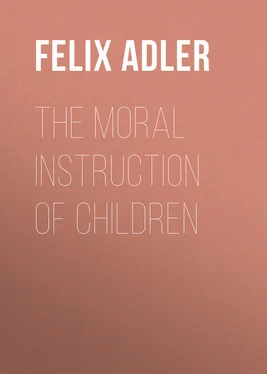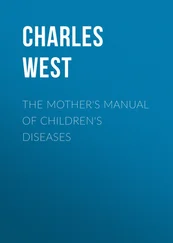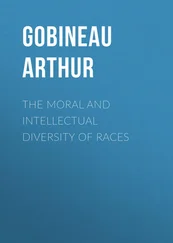Felix Adler - The Moral Instruction of Children
Здесь есть возможность читать онлайн «Felix Adler - The Moral Instruction of Children» — ознакомительный отрывок электронной книги совершенно бесплатно, а после прочтения отрывка купить полную версию. В некоторых случаях можно слушать аудио, скачать через торрент в формате fb2 и присутствует краткое содержание. Жанр: foreign_language, foreign_antique, foreign_prose, на английском языке. Описание произведения, (предисловие) а так же отзывы посетителей доступны на портале библиотеки ЛибКат.
- Название:The Moral Instruction of Children
- Автор:
- Жанр:
- Год:неизвестен
- ISBN:нет данных
- Рейтинг книги:3 / 5. Голосов: 1
-
Избранное:Добавить в избранное
- Отзывы:
-
Ваша оценка:
- 60
- 1
- 2
- 3
- 4
- 5
The Moral Instruction of Children: краткое содержание, описание и аннотация
Предлагаем к чтению аннотацию, описание, краткое содержание или предисловие (зависит от того, что написал сам автор книги «The Moral Instruction of Children»). Если вы не нашли необходимую информацию о книге — напишите в комментариях, мы постараемся отыскать её.
The Moral Instruction of Children — читать онлайн ознакомительный отрывок
Ниже представлен текст книги, разбитый по страницам. Система сохранения места последней прочитанной страницы, позволяет с удобством читать онлайн бесплатно книгу «The Moral Instruction of Children», без необходимости каждый раз заново искать на чём Вы остановились. Поставьте закладку, и сможете в любой момент перейти на страницу, на которой закончили чтение.
Интервал:
Закладка:
The publishers of this series are glad, therefore, to offer a book so timely and full of helpful suggestions as this of Mr. Adler. It is hoped that it may open for many teachers a new road to theoretic instruction in morality, and at the same time re-enforce the study of literature in our schools.
W. T. Harris.Washington, D.C., July, 1892 .
PREFATORY NOTE
The following lectures were delivered in the School of Applied Ethics during its first session in 1891, at Plymouth, Mass. A few of the lectures have been condensed, in order to bring more clearly into view the logical scheme which underlies the plan of instruction here outlined. The others are published substantially as delivered.
I am deeply conscious of the difficulties of the problem which I have ventured to approach, and realize that any contribution toward its solution, at the present time, must be most imperfect. I should, for my part, have preferred to wait longer before submitting my thought to teachers and parents. But I have been persuaded that even in its present shape it may be of some use. I earnestly hope that, at all events, it may serve to help on the rising tide of interest in moral education, and may stimulate to further inquiry.
Felix Adler.INTRODUCTORY LECTURES
I.
THE PROBLEM OF UNSECTARIAN MORAL INSTRUCTION
It will be the aim of the present course of lectures to give in outline the subject-matter of moral instruction for children from six to fourteen or fifteen years of age, and to discuss the methods according to which this kind of instruction should be imparted. At the outset, however, we are confronted by what certainly is a grave difficulty, and to many may appear an insuperable one. The opinion is widely held that morality depends on religious sanctions, and that right conduct can not be taught – especially not to children – except it be under the authority of some sort of religious belief. To those who think in this way the very phrase, unsectarian moral teaching, is suspicious, as savoring of infidelity. And the attempt to mark off a neutral moral zone, outside the domains of the churches, is apt to be regarded as masking a covert design on religion itself.
The principle of unsectarian moral instruction, however, is neither irreligious nor anti-religious. In fact – as will appear later on – it rests on purely educational grounds, with which the religious bias of the educator has nothing whatever to do. But there are also grounds of expediency which, at least in the United States, compel us, whether we care to do so or not, to face this problem of unsectarian moral education, and to these let us first give our attention. Even if we were to admit, for argument's sake, the correctness of the proposition that moral truths can only be taught as corollaries of some form of religious belief, the question would at once present itself to the educator, To which form of religious belief shall he give the preference? I am speaking now of the public schools of the United States.
These schools are supported out of the general fund of taxation to which all citizens are compelled to contribute. Clearly it would be an act of gross injustice to force a citizen belonging to one denomination to pay for instilling the doctrines of some other into the minds of the young – in other words, to compel him to support and assist in spreading religious ideas in which he does not believe. This would be an outrage on the freedom of conscience. But the act of injustice would become simply monstrous if parents were to be compelled to help indoctrinate their own children with such religious opinions as are repugnant to them.
There is no state religion in the United States. In the eyes of the state all shades of belief and disbelief are on a par. There are in this country Catholics, Episcopalians, Presbyterians, Methodists, Baptists, Jews, etc. They are alike citizens. They contribute alike toward the maintenance of the public schools. With what show of fairness, then, could the belief of any one of these sects be adopted by the state as a basis for the inculcation of moral truths? The case seems, on the face of it, a hopeless one. But the following devices have been suggested to remove, or rather to circumvent, the difficulty.
First Device. – Let representatives of the various theistic churches, including Catholics, Protestants, and Jews, meet in council. Let them eliminate all those points in respect to which they differ, and formulate a common creed containing only those articles on which they can agree. Such a creed would include, for instance, the belief in the existence of Deity, in the immortality of the soul, and in future reward and punishment. Upon this as a foundation let the edifice of moral instruction be erected. There are, however, two obvious objections to this plan. In the first place, this "Dreibund" of Catholicism, Protestantism, and Judaism would leave out of account the party of the agnostics, whose views may indeed be erroneous, or even detestable, but whose rights as citizens ought not the less on that account to be respected. " Neminem læde ," hurt no one, is a cardinal rule of justice, and should be observed by the friends of religion in their dealings with their opponents as well as with one another. The agnostic party has grown to quite considerable dimensions in the United States. But, if it had not, if there were only a single person who held such opinions, and he a citizen, any attempt on the part of the majority to trample upon the rights of this one person would still be inexcusable. In the sphere of political action the majority rules, and must rule; in matters that touch the conscience the smallest minority possesses rights on which even an overwhelming majority arrayed on the opposite side can not afford to trespass. It is one of the most notable achievements of the American commonwealths that they have so distinctly separated between the domain of religion and of politics, adopting in the one case the maxim of coercion by majority rule, in the other allowing the full measure of individual liberty. From this standpoint there should be no departure.
But the second objection is even more cogent. It is proposed to eliminate the differences which separate the various sects, and to formulate their points of agreement into a common creed. But does it not occur to those who propose this plan that the very life of a religion is to be found precisely in those points in which it differs from its neighbors, and that an abstract scheme of belief, such as has been sketched, would, in truth, satisfy no one? Thus, out of respect for the sentiments of the Jews, it is proposed to omit the doctrines of the divinity of Christ and of the atonement. But would any earnest Christian give his assent, even provisionally, to a creed from which those quintessential doctrines of Christianity have been left out? When the Christian maintains that morality must be based on religion, does he not mean, above all, on the belief in Christ? Is it not indispensable, from his point of view, that the figure of the Saviour shall stand in the foreground of moral inculcation and exhortation? Again, when the Catholic affirms that the moral teaching of the young must be based on religion, is it to be supposed for an instant that he would accept as satisfying his conception of religion a skeleton creed like that above mentioned, denuded of all those peculiar dogmas which make religion in his eyes beautiful and dear? This first device, therefore, is to be rejected. It is unjust to the agnostics, and it will never content the really religious persons of any denomination. It could prove acceptable only to theists pure and simple, whose creed is practically limited to the three articles mentioned; namely, the belief in Deity, immortality, and future punishment and reward. But this class constitutes a small fraction of the community; and it would be absurd, under the specious plea of reconciling the various creeds, in effect to impose the rationalistic opinions of a few on the whole community.
Читать дальшеИнтервал:
Закладка:
Похожие книги на «The Moral Instruction of Children»
Представляем Вашему вниманию похожие книги на «The Moral Instruction of Children» списком для выбора. Мы отобрали схожую по названию и смыслу литературу в надежде предоставить читателям больше вариантов отыскать новые, интересные, ещё непрочитанные произведения.
Обсуждение, отзывы о книге «The Moral Instruction of Children» и просто собственные мнения читателей. Оставьте ваши комментарии, напишите, что Вы думаете о произведении, его смысле или главных героях. Укажите что конкретно понравилось, а что нет, и почему Вы так считаете.












